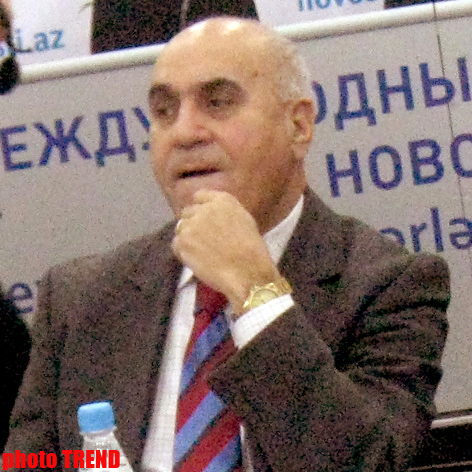Azerbaijan, Baku, Nov. 24 / Trend E. Ostapenko /
Integration prospects for South Caucasus and Central Asia were discussed during round-table talks at the RIA Novosti Press Center in Baku today.
Proposals were put forward to create regional alliances and unions.
Representatives of the Kazakh, Russian and Turkish embassies and leading Azerbaijani politicians participated in the discussions.
While opening the talks, Charge d'Affaires of the Kazakh Embassy Dastan Suleimenov stressed the Central Asia's and the South Caucasus' prospects if they unite to form an effective alliance. If five Central Asian countries unite, they can become a real force in international politics, he said. Suleimanov does not rule out the possibility of Azerbaijan and Turkey joining the union.
Initiatives to create such alliances were first put forward in 1990, but did not lead to any results, Azerbaijani political scientist Fikret Sadikhov said.
He expressed hope that proposals to establish such alliances and unions will be backed by real efforts and activities.
"We are at an interesting stage of the integration process when vectors change," politician Rasim Agayev said. "There are possibilities to unite Azerbaijan and Central Asia."
In such a way the Eurasian sphere would be restored, Agayev said.
The role of two factors - Turkey's rapprochement with Russia and also with Central Asian states - is the main vector of integration development in regional, international politics, he said.
Politician Rauf Rajabov said the Eurasian Economic Community (EurAsEC) is the most prospective integrations format for Central Asian countries.
Considering the obvious gradual weakening of the U.S. and EU, Rajabov said an alternative EU powerful alliance must be formed within the Eurasian Economic Community.
But he added that it is still unknown whether the Eurasian Economic Community and other similar associations will be ready to take on such a responsibility.
The influence of territorial and other conflicts in the South Caucasus and Central Asia on future integration was also discussed.
In this context, representative of the Turkish Embassy in Azerbaijan Nihat Javanet proposed the idea to abstract political motives and focus on overall economic benefit.
If economic cooperation prevails over political motives, this could be a real solution, and genuine method to break the deadlock, Javanet said.






